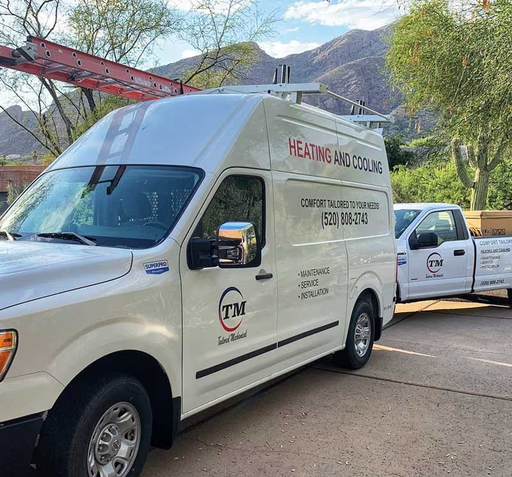Introduction

When it comes to investing in new heating and cooling systems for your home, understanding warranty options is crucial. With so many choices available, you might find yourself pondering questions like: What exactly does a warranty cover? How long does it last? What should I do if I need HVAC repair in Tucson? This article aims to clear the fog surrounding warranties, providing you with all the information you need to make an informed decision about your heating and cooling systems.
Understanding Warranty Options on New Heating and Cooling Systems
Purchasing a new heating or cooling system is a significant investment. One of the most important aspects of that investment is HVAC repair in Tucson the warranty. A warranty serves as a safety net, protecting you from unexpected failures and costly repairs. However, not all warranties are created equal.
Types of Warranties
1. Manufacturer’s Warranty
Manufacturer's warranties are provided by the company that makes your heating or cooling unit. These warranties typically cover parts and sometimes labor for a specific period following installation. Most manufacturers offer warranties ranging from five to ten years.
2. Extended Warranty
Extended warranties can be purchased separately and provide additional coverage beyond the manufacturer's warranty period. This option can be beneficial if you plan to stay in your home for an extended time.
3. Labor Warranty
Labor warranties cover the cost of labor for repairs or replacements necessary due to defects in materials or workmanship during installation. It’s crucial to clarify what this entails with your HVAC contractor.
What Does a Standard Warranty Cover?
A standard warranty generally covers:
- Parts: Replacement parts if they fail due to manufacturing defects. Labor: The labor costs associated with replacing faulty parts. Refrigerant Leaks: Coverage for issues related to refrigerant leaks.
What’s Not Covered by Most Warranties?
While warranties provide valuable coverage, they often have exclusions such as:
- Normal wear and tear Negligence or improper maintenance Damage caused by natural disasters
The Importance of Reading the Fine Print
Always read the fine print before signing any warranty agreement. Key details may include:
- What specific components are covered Duration of coverage Conditions that void the warranty
How to Activate Your Warranty After Installation?
To activate your warranty, you'll typically need to complete a registration form provided by your manufacturer within a certain timeframe after installation—often 60 days.

Common Misconceptions About Warranties
Many homeowners fall prey to misconceptions about their warranties:
"All repairs are covered." – Not true; check exclusions. "I can do my own repairs." – Unauthorized repairs can void your warranty. "Warranties last forever." – They have specific time limits; know them!Choosing the Right HVAC System Based on Warranty Options
When selecting a new HVAC system, consider how its warranty aligns with your needs.

Factors Affecting Your Choice of HVAC System
1. Energy Efficiency Ratings (EER)
Higher energy efficiency can lead to lower utility bills and might influence manufacturer warranties.
2. Size and Compatibility
Ensure that your chosen system fits well with existing ductwork and meets your home's heating/cooling load requirements.
Importance of Regular Maintenance for Maintaining Warranty Validity
To keep your warranty intact, regular maintenance is essential.
What Maintenance Tasks Should You Consider?
Regular tasks include:
- Changing air filters Cleaning coils Scheduling annual inspections with professionals like Tailored Mechanical
How Often Should You Schedule Maintenance?
Most experts recommend scheduling maintenance twice a year—once before summer for cooling systems and once before winter for heating systems.
Common Problems That May Void Your Warranty
Some common mistakes can void your warranty:
Skipping routine maintenance Using unapproved contractors for repairs Modifying unit components without manufacturer approvalUnderstanding Local Regulations Concerning Warranties in Tucson
Local regulations may affect what is mandated concerning HVAC system warranties in Tucson.
Navigating Local Laws
It's vital to understand local laws governing consumer rights related to HVAC products when making a purchase decision.
FAQs About Warranties on Heating & Cooling Systems
1. What should I do if my system fails while under warranty?
First, contact your dealer or manufacturer’s customer service immediately with proof of purchase and maintenance records.
2. Can I transfer my warranty if I sell my house?
Yes, many manufacturers allow warranties to be transferred upon sale; however, it's best to check specific terms first.
3. Are extended warranties worth it?
If you plan on staying in one place long-term, they can save you money on potential repair costs down the road.
4. How do I file a claim under my warranty?
Contact the manufacturer's customer service line directly involving detailed documentation regarding the issue at hand.
5. Will routine maintenance always keep my warranty valid?
Yes, as long as maintenance follows manufacturer guidelines it ensures that any claims won’t be denied based on neglect.
6. Who should perform maintenance on my equipment?
Always hire certified professionals like Tailored Mechanical who understand the intricacies involved in maintaining various models effectively.
Conclusion: Making Informed Decisions About Your Heating & Cooling Systems’ Warranties
Understanding warranty options on new heating and cooling systems isn’t just about safeguarding an investment; it's about peace of mind knowing you're covered against unexpected failures down the line! By educating yourself about different types of warranties, what's included (and excluded), as well as maintaining compliance through regular upkeep—like scheduling HVAC repair in Tucson—you set yourself up for success!
Invest wisely today so you won’t be blindsided tomorrow; take control over your home comfort solutions now! Whether you're dealing with minor repairs or major installations, remember that knowledge is power—and when it comes down to making those important decisions around heating and cooling systems—it truly pays off!